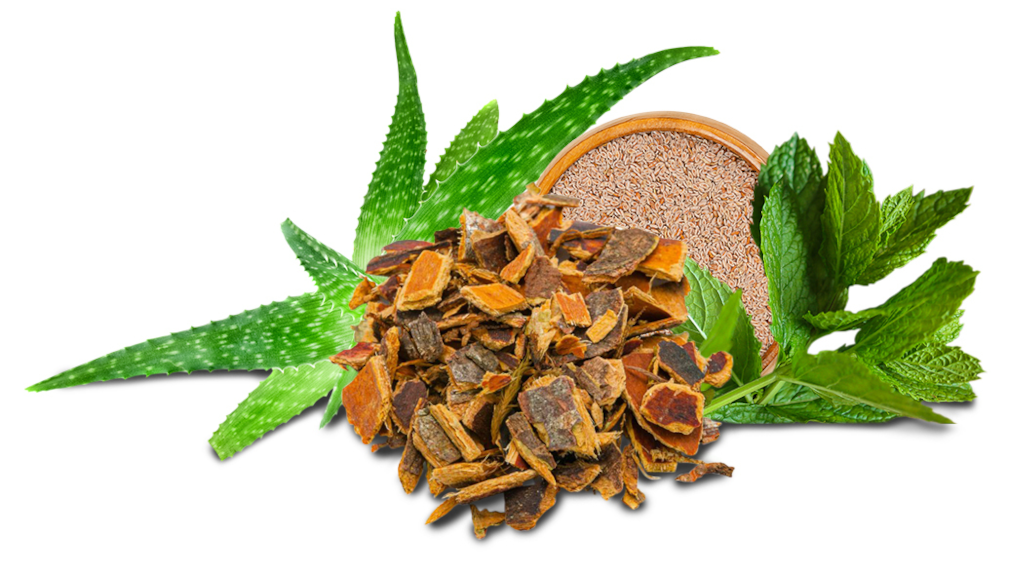Which Medicinal Herbs Are Good for Your Digestive System?

Plants and herbs are the oldest medicines in the world. Still today, herbalism, or phytotherapy, is used by many people as a natural alternative in treating a number of ailments, including those that affect the digestive system.
Peppermint
Peppermint is known to alleviate stomach upset, bloating and indigestion. Animal studies show that it can relax the digestive system and ease pain. And because peppermint also prevents smooth muscles from contracting, it can help relieve gut spasms.
* The peppermint in ACTUMUS VIBEis recommended as a way to address gastrointestinal inflammation.
Cascara sagrada
Cascara sagrada is a small tree that grows in North America, mainly California and southeastern British Columbia. Its bark has chemical substances called anthraquinones that give it its colour and laxative effect.
** BIOFLO 2 by ACTUMUS contains cascara sagrada to help soothe occasional constipation and promote healthy elimination.
Psyllium
Psyllium is the seed of the plant often referred to as blond plantain. It is part of a family of natural laxatives and promotes good intestinal function. When constipation strikes, psyllium fibre helps to soften stools and ease their passage.
*** Psyllium is the main ingredient in our BIOFLO 1 supplement. Its high fibre content is a trusted solution for improving digestive comfort and regularity.
Aloe vera juice
Aloe vera juice is known for its digestive and laxative properties. It is often used to relieve bloating and help the digestive tract work more efficiently. Made from the crushed, nutrient-dense leaves of the aloe vera plant, the juice contains more than 150 active substances that contribute to gastrointestinal health and strengthen the body’s natural defences. Studies have shown the vital role that aloe vera can play in reducing gastric inflammation.
**** ALOE MAX by ACTUMUS is made with the juice of organic aloe vera leaves, making it an ideal companion in your digestive wellness journey. Its emollient properties help reduce symptoms of intestinal irritation.
*https://pubmed.ncbi.nlm.nih.gov/16767798/
**https://www.sciencedirect.com/topics/pharmacology-toxicology-and-pharmaceutical-science/anthraquinone
***https://onlinelibrary.wiley.com/doi/abs/10.1111/j.1365-2036.1995.tb00433.x#references-section
****https://pubmed.ncbi.nlm.nih.gov/16610053/



